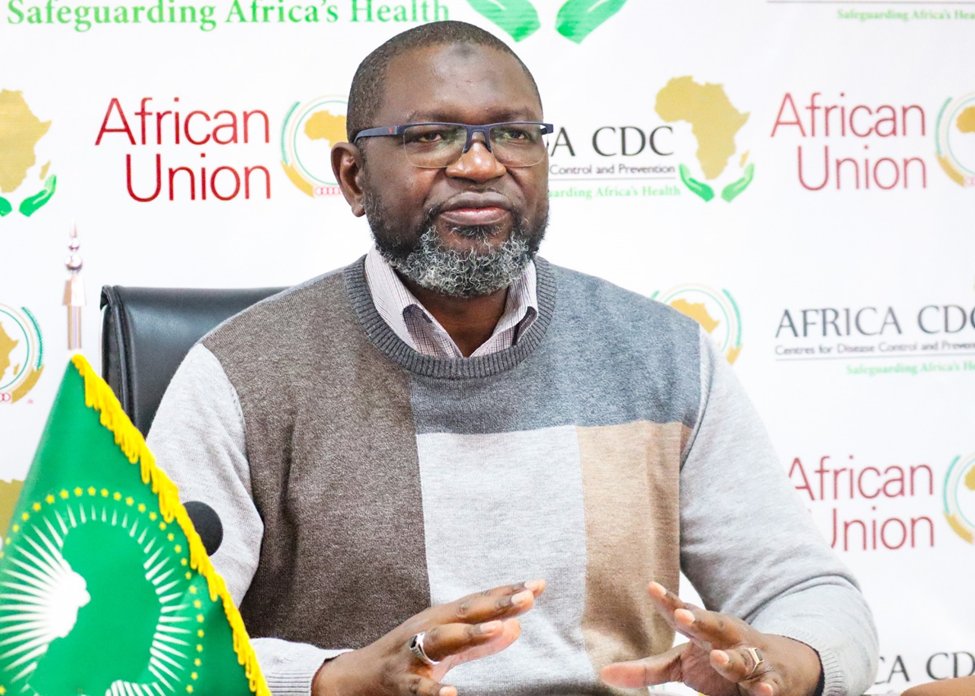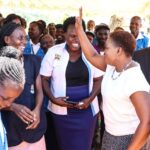The vast indigenous knowledge among African communities holds the key to unlocking local solutions to emerging health challenges on the continent. The Deputy Director General of the Africa Center for Disease Control (AfricaCDC) Dr. Ahmed Ogwell Ouma says.
In his presentation at the just concluded 2nd Africa Health Harm Reduction Conference held in Marrakesh, Morocco, Dr. Ogwell says owing to disruptions due to climate change there is a need for Africa to explore ways of disease prevention as this is the only way that the continent can handle the multiple disease threats affecting populations on the continent.
The Deputy Director General of Africa CDC based at the African Union Commission Dr. Ogwell says that health harm reduction is a more viable way of ensuring a healthy and productive continent whose resources continue to be limited.
“The theme this year, health in Africa, water, environment, and food security, is timely because, during this difficult time when climate change is increasingly disrupting our ways of life, it is important that we put these discussions at the center of our forums,” says Dr. Ogwell and adds, “our communities have been handling issues of water, food security and the environment for hundreds of years, using local knowledge experience and expertise.”
Dr Ogwell called for exploring options like the use of indigenous knowledge noting that the global south is made of ancient civilisations that have survived many shocks adding that such experiences are critical and if documented can be the springboard on which to find solutions to current challenges.
“Reducing ill health is really the best way for Africa to handle the multiple disease threats that our citizens continue to face,” said Dr. Ogwell, noting that the missing link in addressing health harm reduction strategies in Africa is due to the slow uptake and use of indigenous knowledge and local knowledge.
He explained that Africa generates a lot of knowledge and data that is instead utilized by those outside the continent to craft solutions for their own situations, “this South-South dialogue comes at a crucial time for our resource-constrained countries arguing that if the data collected in Africa were to be analyzed and used on the continent, solutions to challenges affecting the continent would be found.
“one of the missing links in addressing our health harm reduction strategies is the slow uptake of indigenous knowledge,” he said Dr. Ogwell called for a relook at what works for the continent in finding solutions to health challenges by mostly using indigenous knowledge and locally generated data.
“We generate a lot of information and data in the global South, this information when well analyzed can be the source of a lot of evidence of what can work,” said the Deputy Director General of the Africa Center for Disease Control.
At the same time, Medics and researchers are urging Africa to begin to embrace vaccines in disease prevention and control. The Director of the Center for Travel Medicine and Tropical Diseases, at Sheba Medical Center in Israel Prof. Eyal Leshem says, Africa is registering staggering numbers of deaths that would be prevented through the administration of vaccines, with the most affected being children under 5 years.
While the disease burden in Africa continues to rise, deaths can be prevented through access to and administration of life-saving vaccines, Prof. Leshem says deaths due to respiratory infections like pneumonia can be prevented through jabs, yet over 488 million cases of pneumonia, are recorded annually resulting in 2.4 million deaths with most of which are in developing countries.
The clinical associate professor at Tel Aviv University School of Medicine in Israel says 15,000 children under the age of five die each day in Africa and the global south, from preventable diseases due to lack of access to vaccines. He notes that diseases cause morbidity and mortality leading to loss of earnings and impacting on the general economies of most developing countries.
Prof. Leshem is calling on the global community to ensure access to vaccines for developing countries noting that this is a global moral obligation.
“It is the responsibility of the global community to make sure that access to new vaccines, and new medical technology is equitable and that vaccines are distributed to where they are most needed, in the high mortality low resource setting,” said Pro. Leshem.
Diarrhea, Malaria, and pneumonia are some of the health risks affecting children under five in Africa and cause the highest incidents of mortality.





